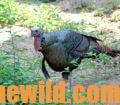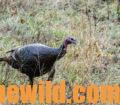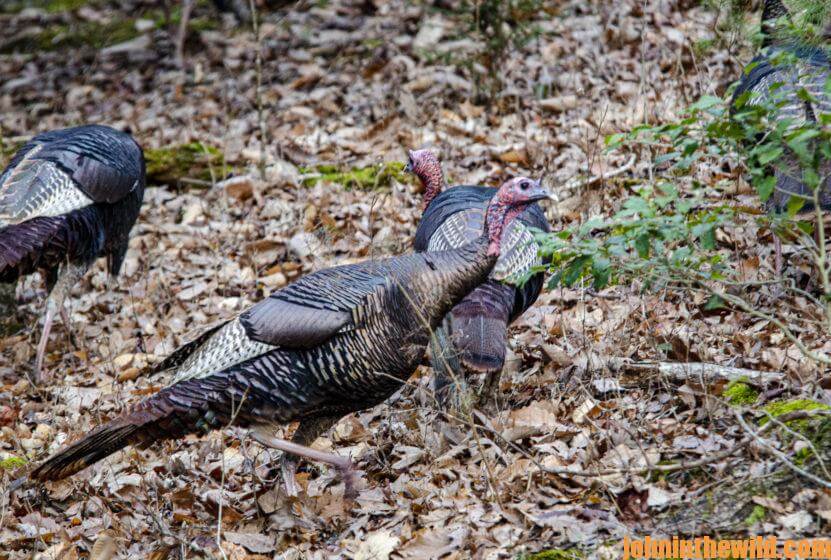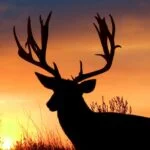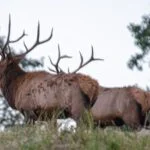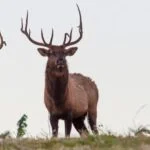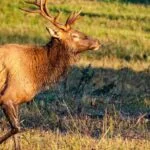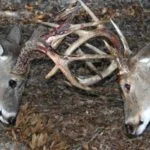Editor’s Note: Bob Walker of Livingston, Alabama, hunts turkeys every day of the season as a guide at Bent Creek Lodge (http://www.bentcreeklodge.com/ – 205-398-3040) in Jachin, Ala. Most turkey hunters want to hit the woods on opening day of turkey season, however, in many states turkey season opens before turkey breeding season starts. Here Walker gives us tips for taking early-season gobblers.
If you deer hunt in the same woods where you turkey hunt, you’ve definitely got an advantage. However, some landowners will lease out their deer-hunting rights to one group of hunters and their turkey rights to other hunters. But if you deer hunt the same property that you turkey hunt, you need to make note of 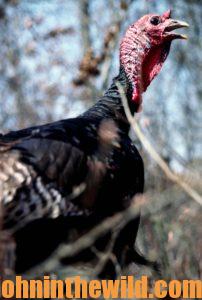 where you’ve seen turkeys during deer season. If you don’t deer hunt the property where you’ll be hunting turkeys, talk to the people who deer hunt that land to learn where they’ve spotted turkeys during deer season.
where you’ve seen turkeys during deer season. If you don’t deer hunt the property where you’ll be hunting turkeys, talk to the people who deer hunt that land to learn where they’ve spotted turkeys during deer season.
Many years where I live, we’ll have a late spring, and the turkeys still will be holding in the same places where they’ve been during the fall and winter. If spring comes late, the turkeys usually will be concentrating in thicker cover than they’ll hold in later in the spring. So, knowing the places where turkeys hold in the winter will let you know where to start hunting at the first of turkey season. Also understanding the type of weather you’ll have to deal with during the first week of turkey season is a critical ingredient for knowing where the turkeys will be, and what they’ll be doing. If your region is experiencing a late spring, and you realize the turkeys will be in their fall and winter mode, then don’t expect to hear much gobbling during the first of turkey season. This late-spring scenario is when scouting before the season is critical, because you have to hunt the turkeys like you hunt deer. You’ll need to know where the turkeys are roosting, and where they’re traveling. You may not hear a gobbler answer a turkey call, however, if you take a stand where the turkey wants to be, you’ll have a reasonably-good chance to bag that bird due to your scouting.
During the early season, oftentimes my ears are more important for finding a gobbler than my calling. I want to be extremely quiet when I sit down and remain totally motionless. If I’ve got a young person, someone who’s never hunted a turkey before, or a hunter who doesn’t have much experience hunting with me, I’ll take a blind. Then if he or she start fidgeting, the turkeys won’t spot their movements. Many times I’ve been sitting with a turkey hunter, when I haven’t called at all but say to the hunter, “Get ready, that gobbler’s coming.” The hunter will whisper back, “I don’t see him.” I’ll tell him, “He’s walking off to your left. When you see him, he may be in gun range, so be ready. But wait for me to tell you when to shoot.”
To learn more about turkey hunting, check out John E. Phillips’s book, “PHD Gobblers: How to Hunt the Smartest Turkeys in 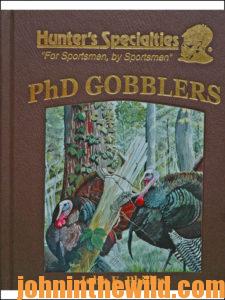 the World, revised edition.” at eBook: https://amzn.to/37BcHJh and Print book: https://amzn.to/2O5KNgT.
the World, revised edition.” at eBook: https://amzn.to/37BcHJh and Print book: https://amzn.to/2O5KNgT.
Tomorrow: Understand Where Turkeys Are in Their Yearly Life Cycle

